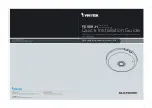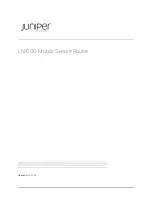
1-20
Character
Meaning
Remarks
+
Addition, used to match a
character or character group
one or multiple times before it
For example, “zo+” can match “zo” and
“zoo”, but not “z”.
|
Vertical bar, used to match the
whole string on the left or right
of it
For example, “def|int” can only match a
character string containing “def” or “int”.
_
Underline. If it is at the
beginning or the end of a
regular expression, it equals ^
or $; in other cases, it equals
comma, space, round bracket,
or curly bracket.
For example, “a_b” can match “a b” or
“a(b”; “_ab” can only match a line
starting with “ab”; “ab_” can only match a
line ending with “ab”.
-
Hyphen. It connects two values
(the smaller one before it and
the bigger one after it) to
indicate a range together with
[ ].
For example, “1-9” means numbers from
1 to 9 (inclusive); “a-h” means from a to h
(inclusive).
[ ]
A range of characters, Matches
any character in the specified
range.
For example, [16A] can match a string
containing any character among 1, 6,
and A; [1-36A] can match a string
containing any character among 1, 2, 3,
6, and A (with - being a hyphen).
“]” can be matched only when it is put at
the beginning of [ ] if it is used as a
common character in [ ], for example
[ ]
string
]. There is no such limit on “[”.
( )
A character group. It is usually
used with “+” or “*”.
For example, (123A) means a character
group “123A”; “408(12)+” can match
40812 or 408121212. But it cannot
match 408.
\index
Repeats a specified character
group for once. A character
group refers to the string in ()
before \.
index
refers to the
sequence number (starting from
1 from left to right) of the
character group before \: if only
one character group appears
before \, then
index
can only be
1; if n character groups appear
before
index
, then
index
can be
any integer from 1 to n.
For example, (
string
)\1 means to repeat
string
for once, and (
string
)\1 must
match a string containing
stringstring;
(
string1
)(
string2
)\2 means to repeat
string2
for once, and (
string1
)(
string2
)\2
must match a string containing
string1string2string2;
(
string1
)(
string2
)\1\2 means to repeat
string1
for once first
,
and then repeat
string2 for once
, and
(
string1
)(
string2
)\1\2 must match a string
containing
string1string2string1string2.
[^]
Used to match any character
not in a specified range.
For example, [^16A] means to match a
string containing any character except 1,
6 or A, and the string can also contain 1,
6 or A, but cannot contain these three
characters only. For example, [^16A]
can match “abc” and “m16”, but not 1,
16, or 16A.
\<string
Used to match a character
string starting with string.
For example, “\<do” can match word
“domain” or string “doa”.
string\>
Used to match a character
string ending with string.
For example, “do\>” can match word
“undo” or string “abcdo”.
Summary of Contents for S5500-SI Series
Page 161: ...3 10 GigabitEthernet1 0 1 2 MANUAL...
Page 220: ...1 7 Clearing ARP entries from the ARP table may cause communication failures...
Page 331: ...1 7 1 1 ms 1 ms 1 ms 1 1 6 1 2 1 ms 1 ms 1 ms 1 1 4 1 3 1 ms 1 ms 1 ms 1 1 2 2 Trace complete...
Page 493: ...2 8...
Page 1111: ...1 10 Installing patches Installation completed and patches will continue to run after reboot...
















































